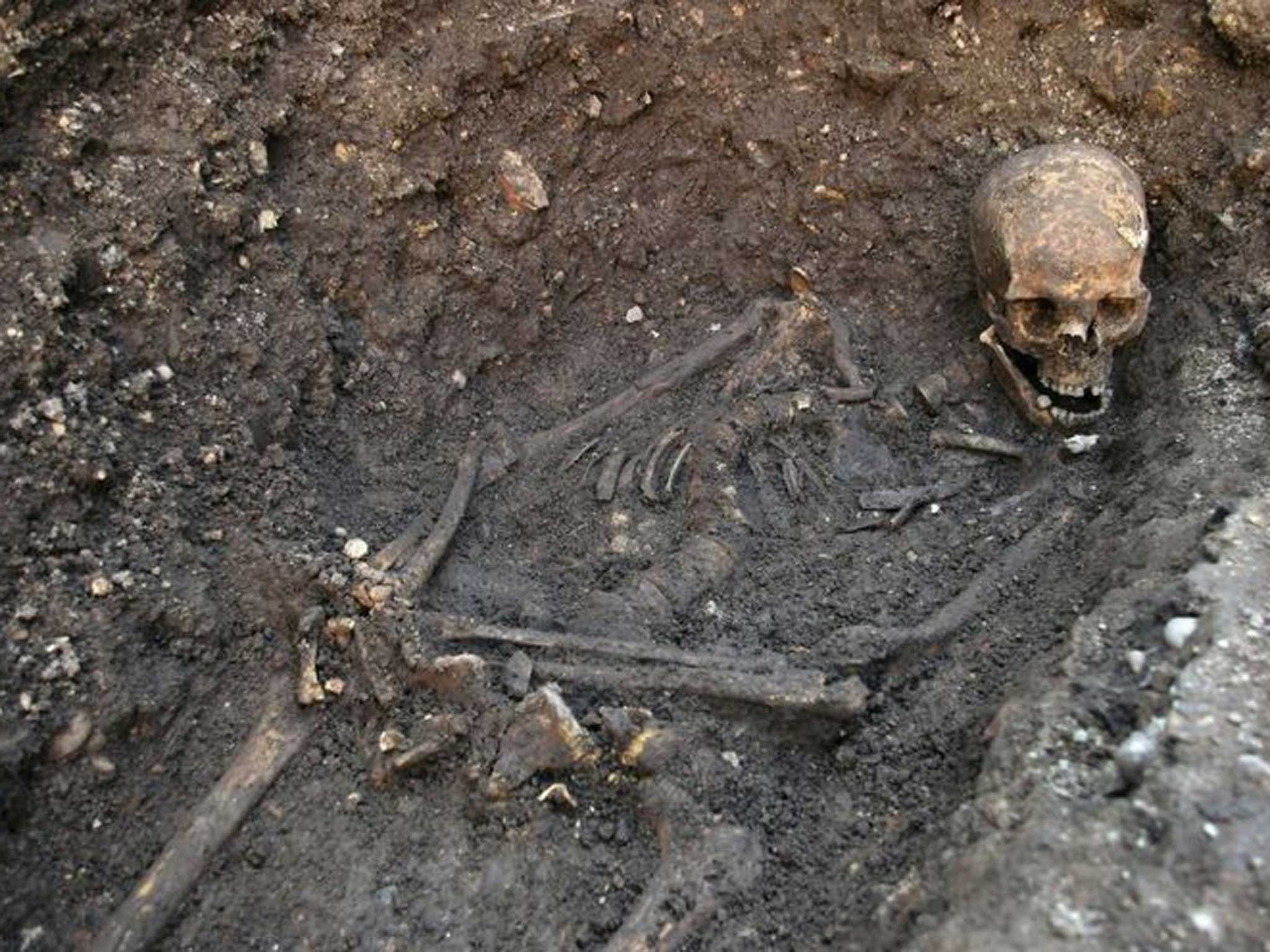People's burial wishes should be registered to avoid arguments, say legal experts
Proposals follow High Court judges' decision to keep Richard III's body in Leicester, rather than move it to York

Your support helps us to tell the story
From reproductive rights to climate change to Big Tech, The Independent is on the ground when the story is developing. Whether it's investigating the financials of Elon Musk's pro-Trump PAC or producing our latest documentary, 'The A Word', which shines a light on the American women fighting for reproductive rights, we know how important it is to parse out the facts from the messaging.
At such a critical moment in US history, we need reporters on the ground. Your donation allows us to keep sending journalists to speak to both sides of the story.
The Independent is trusted by Americans across the entire political spectrum. And unlike many other quality news outlets, we choose not to lock Americans out of our reporting and analysis with paywalls. We believe quality journalism should be available to everyone, paid for by those who can afford it.
Your support makes all the difference.Whether it's wanting to be buried in a biodegradable coffin, having your ashes scattered over Anfield, or being laid to rest in a royal crypt, most of us have strong feelings about what happens to our bodies after death. Now legal experts are proposing to make those wishes legally binding for the first time.
The proposals come in the wake of the High Court judges' decision to keep Richard III's body in Leicester, rather than move it to York because he had not expressed clear burial wishes.
Thomas Muinzer, a legal researcher at Queen's University Belfast and author of The Law of the Dead, has recommended that contemporary requests written in wills, burial letters and pre-paid funeral plans, should be legally binding so that individuals can ensure what happens to their bodies when they die.
"If the High Court judges could find historical evidence of Richard III's burial wishes then they would have had to consider them," he said. "That is the whole crux of the contemporary issue – whether to go with wishes or ignore them – it is right at the heart of burial law and the questions we are asking," he added. "You have a right to donate your body to science, but you don't have the right to say, 'I want to be cremated.' There is a disparity there.
"Burial wishes don't have legal weight, and those responsible for the duty to bury may not follow them. For example, if a child converts faith, the parents may decide to bury them in accordance with their own traditions regardless of how the deceased chose to live."
According to current UK law, decisions regarding the burial of the deceased usually fall on a hierarchy which starts with the deceased's spouse and moves on to children, parents, siblings and extended relations. This means that judges face impossible decisions where equal duty to bury is given to two conflicting parties.
As well as wills, burial letters, pre-paid funeral plans and witnessed oral direction, Mr Muinzer recommends a legally binding online burial register, similar to that of the NHS organ donor register.
Sean Healy, a funeral director in Belfast, said that religious differences, including whether a Catholic or Protestant service should be held, could be solved by legislation: "If a family member comes in, it is up to them to let us be privy to the wishes; but if wishes were given in a legal way, that would be helpful. It would mean there were no grey areas."
In 2010, Baba Davender Kumar Ghai won a four-year campaign at the Court of Appeal which ruled that he was legally allowed to receive a traditional Hindu funeral pyre when he died. The Newcastle resident backed further changes to improve individual rights. He said: "I am happy that I will be allowed to have the ritual I wanted; but if I die, my son might turn around and say, 'I don't want an open-air funeral; I want a cremation because that only takes one hour rather than two days.'"
A Ministry of Justice spokesperson said: "We are not currently considering these proposals, but burial law and policy is kept under regular review."
Join our commenting forum
Join thought-provoking conversations, follow other Independent readers and see their replies
Comments